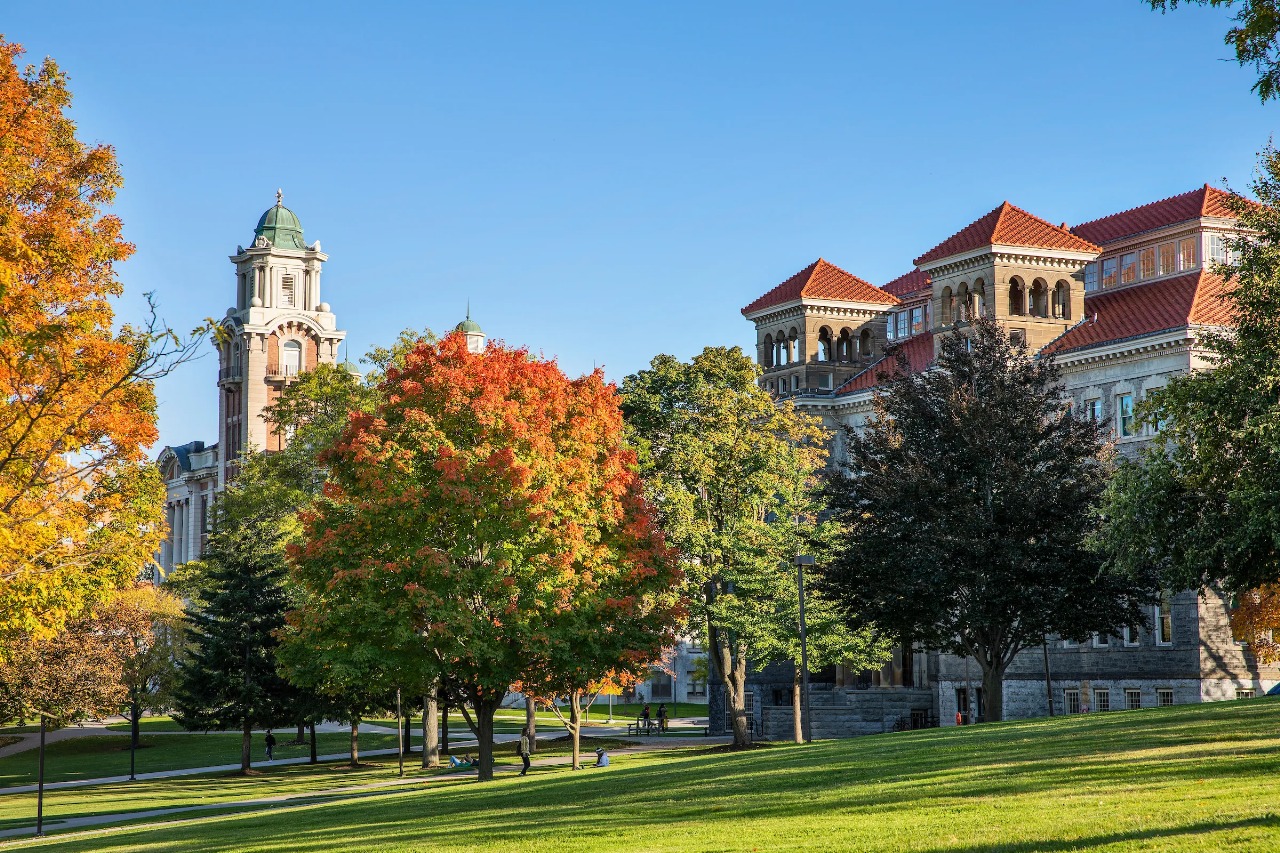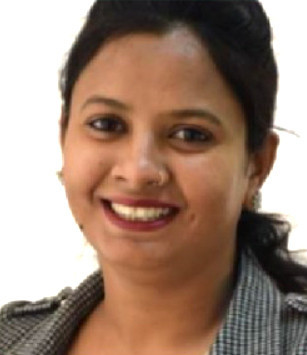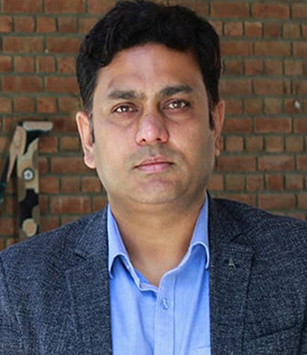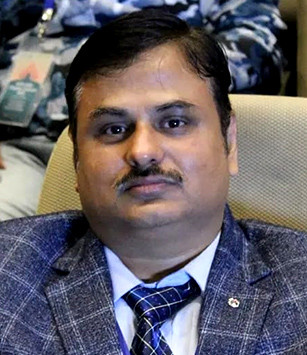



School of Computer Science & Engineering, IILM University Gurugram
Final Submission Date: 13th April, 2025
The rapid advancements in Artificial Intelligence (AI) are shaping the future of industries, society and research. As AI continues to revolutionise multiple domains, it is crucial to explore its potential, address challenges and uncover new frontiers. The "AI Frontiers: Innovations, Challenges & Applications" symposium aims to bring together young investigators from different universities across the globe to put their understanding and review about the recent development in the domain of AI. This symposium provides a global platform for young investigators to present their work, engage in meaningful discussions, and collaborate on pioneering ideas in AI. Researchers at the PhD, postgraduate and undergraduate levels, along with their mentors and advisors, are invited to participate and showcase their contributions. Presentations will be conducted in hybrid mode and the registration fee for the event is ₹500.
| Event | Date |
|---|---|
| Submission Deadline | 13-04-2025 |
| Notification of Acceptance | 20-04-2025 |
| Symposium Date | 29-04-2025 |
Young investigators (UG/PG/Phd students) along with their mentors are kindly encouraged to contribute high quality research papers describing results of conceptual, constructive, empirical, experimental, or theoretical work in all areas of Artificial Intelligence and its Applications. Papers that are submitted will be subject to plagiarism checks and blind reviews. Work must not be under review or published elsewhere. The topics covered (but are not limited to) in the conference are as follows:
Dr Padmakali Banerjee, Vice Chancellor, IILM University Gurugram, India
Dr Shamik Tiwari, Dean, School of Computer Science, IILM University Gurugram, India
Dr Jeff Saltz, Professor and Programme Director, Syracuse University, USA
Dr. Anurag Jain, Professor, School of Computer Science, IILM University Gurugram, India.
Dr Jasmina Tacheva, Assistant Professor, Syracuse University, USA
Dr Jeff Saltz, Professor and Programme Director, Syracuse University, USA
Dr Shamik Tiwari, Dean, School of Computer Science, IILM University Gurugram India
Dr. Anurag Jain, Professor, School of Computer Science, IILM University Gurugram, India
Dr Zachary Schuster, Director of Admissions and Recruitment, School of Information Studies, Syracuse University, USA
Mr Biswajyoti Das, Assistant Director of Admissions and Recruitment, School of Information Studies, Syracuse University, USA
Dr Sonam Lata, Assistant Professor, School of Computer Science, IILM University Gurugram, India
Mr Naved Ahmad, Assistant Professor, School of Computer Science, IILM University Gurugram, India
Dr Aarti Tewari, Associate Professor, School of Computer Science, IILM University Gurugram, India
Dr Puja Acharya, Associate Professor, School of Computer Science, IILM University Gurugram, India
Mr Christopher Dunham, Assistant Teaching Professor, Syracuse University, USA
Dr Pooja Batra, Associate Professor, School of Computer Science, IILM University Gurugram, India
Dr Pallavi Pandey, Associate Professor, School of Computer Science, IILM University Gurugram, India
Dr Aarti Chugh, Associate Professor, School of Computer Science, IILM University Gurugram, India
Dr Sapna Arora, Assistant Professor, School of Computer Science, IILM University Gurugram, India
Dr Shagun Phanghal, Assistant Professor, School of Computer Science, IILM University Gurugram, India
Dr Sonam Lata, Assistant Professor, School of Computer Science, IILM University Gurugram, India
Mr Naved Ahmad, Assistant Professor, School of Computer Science, IILM University Gurugram, India
Mr Shailesh Kumar, BTech 2nd year, School of Computer Science, IILM University Gurugram, India
Mr Ayush Dwivedi, BTech 2nd year, School of Computer Science, IILM University Gurugram, India
Mr Jatin Aggarwal, BTech 2nd year, School of Computer Science, IILM University Gurugram, India
Ms Lavanya Sharma, BTech 2nd year, School of Computer Science, IILM University Gurugram, India
Mr Meet Patel, BTech 1st year, School of Computer Science, IILM University Gurugram, India
Mr Yug Prakash, BTech 2nd year, School of Computer Science, IILM University Gurugram, India
Mr Ankit Samanta, BTech 2nd year, School of Computer Science, IILM University Gurugram, India
Dr Manoj Kumar, Associate Professor, Information Sciences, University of Wollongong, Dubai
Dr Deepika Koundal, University Researcher, AI Virtanen Institute, Faculty of Health Sciences
Dr Kusum Yadav, Associate Professor, College of Computer Science and Engineering, University of Ha’il, Kingdom of Saudi Arabia
Dr Balaganesh Duraisamy, Professor, Berlin School of Business & Innovation (BSBI)
Dr Kemal Polat, Professor, Department of Electrical and Electronics Engineering
Dr Lalit Garg, Associate Professor, Faculty of Information & Communication Technology, University of Malta, Malta
Dr Ferdous Sohel, Professor, Information Technology, Murdoch University, Australia
Dr Valentina Emilia Balas, Professor, Faculty of Engineering, Aurel Vlaicu, University of Arad, Romania
Mr Khaled Mohamad Almustafa, Professor, Gulf University for Science & Technology: Kuwait City, KW
Dr Mariya Ouaissa, Professor, Institute Specialising in New Information and Communication Technologies, Safi, Morocco
Dr Ahmed Hamza Osman, Associate Professor, CSE Department, King Abduaziz University Rabigh, Saudi Arabia
Dr Fayadh Alenezi, Associate Professor, Department of Electrical Engineering, College of Engineering Jouf University, Saudi Arabia
Dr Rachna Dhand Manager Data Science, & Analytics and Singapore
Dr Kawther Ali Dhlan Aldhlan, Professor, College of Computer Science and Engineering,University of Ha'il Saudi Arabia
Dr S. B. Goyal, Professor, Faculty of Information Technology City University Petaling Jaya, Malaysia
Dr Subarna Shakya Professor, Department of electronics and Computer engineering, Pulchowk Campus, IOE Tribhuvan University, Nepal
Dr Shashi BhushanSenior Lecturer/Assistant Proffesor, Universiti Teknologi Petronas, Malaysia
Dr Tanupriya Choudhury, Professor, School of Computer Science, UPES Dehardun
Dr Virender Kadyan, Associate Professor, School of Computer Science, UPES Dehardun
Dr Thipendra P Singh, Professor and Dean Academic Affairs, School of Computer Science Engineering and Technology, Bennett University Greater Noida, India
To proceed with registration process, please submit your research papers using the form below. Our team will review your submission and contact you via email with further instructions.
Submit HereThe Microsoft CMT service is used for managing the peer-reviewing process for this conference. This service is provided for free by Microsoft and they bore all expenses, including costs for Azure cloud services as well as for software development and support.

1 Knowledge Centre, Golf Course Road, Plot. 71, Sector 53 Gurgaon-122003 Haryana, India
🌎 www.iilm.edu
School of Computer Science & Engineering is the leading schools at IILM University Gurugram that offers the BTech in Computer Science & Engineering, specialising in AI/ML, Data Science & Big Data Analytics, Cloud Computing, Cyber Security, Robotics Intelligence, Generative AI, Full Stack Development and Immersive Technologies. Additionally, the school offers MTech and PhD programmes. In recent years, the significance of computing education has grown significantly, and the school stands as a leader, committed to shaping future technology pioneers. The primary objective is to empower and guide students to become industry leaders in cutting-edge computing technologies on both national and global scales. The esteemed faculty, with extensive experience, is dedicated to providing students with a unique blend of theoretical knowledge and practical skills necessary for success in the ever-changing fields of Computer Science.
From innovative research to practical projects, the school supports students in navigating the evolving landscape of computer science, encompassing areas such as Artificial Intelligence, Machine Learning, Cloud Computing, Cyber Security, Digital Forensics, Data Analytics, Big Data Technologies, Data Visualisation, Generative AI and Business Intelligence. The curriculum is designed to ensure students acquire a comprehensive understanding of the latest technologies and methodologies driving innovation in this data-driven era.
Aligned with the NEP2020 framework, the curriculum at the School of Computer Science & Engineering features a student-centric flexible structure, multidisciplinary learning, compulsory ability enhancement and skill enhancement courses, value-added courses, product design and development, as well as compulsory internships with multiple exit and entry points. Additionally, the school employs innovative teaching and learning methodologies such as Outcome-Based Education (OBE), Project-Based Learning (PBL), Interleaving (Context Switching), and Pair Programming to enhance the learning experience.
The school actively collaborates with leading industry partners, including HCL, Microsoft, Xebia, L&T, AWS and others, to provide students with real-world exposure, internship opportunities and hands-on experience with cutting-edge technologies. These collaborations ensure students are well-prepared to meet industry demands and contribute meaningfully to the technological advancements of the future.

Syracuse University is a student-focused R1 research university fueled by 150+ years of tradition, academic distinction and a spirit of discovery. Founded in 1870, the University today has an enrollment of more than 22,000 undergraduates and graduate students representing all 50 states, more than 100 countries, and a variety of social and economic backgrounds. Students can choose from more than 200 majors, 100 minors, and 200 advanced degree programs across the University’s 13 academic units.
With a global footprint and a beautiful campus in the heart of New York state, our Orange community embraces innovation and cultivates a sense of belonging for all. Syracuse combines the supportive network of a small college with the superior resources and enhanced research and immersion opportunities needed for students to achieve their academic and professional goals.
Students will learn from world-class teachers, assist in critical research, collaborate across disciplines, and engage in the many faceted intellectual, cultural, and social activities and events that comprise this vibrant campus community. In and out of the classroom, students will gain the knowledge, skills, and experience needed for them to excel in whatever field they choose to pursue.
The symposium will feature keynote talks by distinguished researchers and industry leaders in AI. Panel discussions will explore emerging AI trends, interdisciplinary collaborations, and ethical considerations

Dr Deepika Koundal currently serves as a Senior Researcher at the University of Eastern Finland, an Adjunct Researcher at Ho Chi Minh City Open University in Vietnam, and a Senior Associate Professor (Sabbatical) at UPES Dehradun, India. She is having a rich academic experience, specialising in artificial intelligence, computer vision, image processing and deep learning. She holds a BTech, MTech and PhD in Computer Science and Engineering and has received several prestigious accolades, including the MSCA Seal of Excellence from the European Commission. Recognised as a top 2% researcher by Stanford University in 2023 and 2024. She has earned multiple research excellence awards from UPES and Chitkara University and has published numerous research articles, edited notable books and holds several patents. Additionally, she contributes as a guest and associate editor for leading journals, including IEEE and Elsevier.

Prof Jeffrey Saltz research focuses on the socio-technical issues relating to AI and Data science, such as how to effectively leverage AI and Data Science within an organisational context and how teams should work together to “do” data science and AI projects. His 20 plus years of industry information systems experience has often focused on building new teams that leverage emerging technologies to deliver innovative business solutions. In his last corporate role, he worked at JPMorgan Chase. At JPMC, he reported to the firm’s chief Information officer while helping to drive innovation throughout the firm. He also held several other key technology management positions at the company, including CTO (Consumer and Community Banking Risk Management), Chief Information Architect (Chase Financial Services), global head of eBusiness technology and vice president of computational technology. He previously served as chief technology officer and principal investor at Goldman Sachs/Goldman Sachs Ventures, where he invested and helped incubate technology start-ups. He started his career as a programmer, project leader and consulting engineer with Digital Equipment Corp (now part of HP).

Dr Shamik Tiwari, Dean and Professor at the School of Computer Science & Engineering, IILM University Gurugram, brings over two decades of comprehensive expertise encompassing research, teaching and administration. His leading-edge research has earned him recognition as one of the world’s top 2% of research scientists, acknowledged by Stanford University in 2023 & 2024. Dr. Tiwari’s proficiency extends across diverse domains, including Data Analytics, Statistical Modeling, Predictive Modeling, Machine Learning, Deep Learning, NLP, Image Processing, Computer Vision, and Data Visualisation. Renowned in his field, he has made significant contributions to health diagnostics, particularly in critical areas such as COVID-19, Alzheimer’s Disease, Dermatologist-Level Classification of Skin Cancer and Arrhythmia etc. A notable project led by Dr Tiwari involves the development of a ‘Non-invasive diagnostic tool for diabetic retinopathy using lightweight intelligent applications and fundus photography. This pioneering initiative, recommended and funded by BIRAC, Department of Biotechnology (DBT), Government of India, highlights his dedication to advancing healthcare solutions.

Dr. Akhilesh Kumar Sharma, is a distinguished academic and researcher currently serving as Professor & Head of Department at Manipal University Jaipur. With a Ph.D. in Computer Science & Engineering and over 18 years of exemplary service in reputed engineering institutions, he specializes in Big Data Analytics, Deep Learning, Machine Learning, and Cognitive Intelligence. He has published over 80 research papers in SCI and Scopus-indexed journals, guided Ph.D. scholars, and secured multiple research grants. A Senior Member of IEEE and ACM, he has contributed to academia through conferences, workshops, and industry collaborations. His achievements include prestigious awards, patents, and global academic engagements.
Three Best Paper Awards will be presented to outstanding research contributions.



Selected works will be published as part of a book series with these publishers.
Email: naved.ahmad@iilm.edu